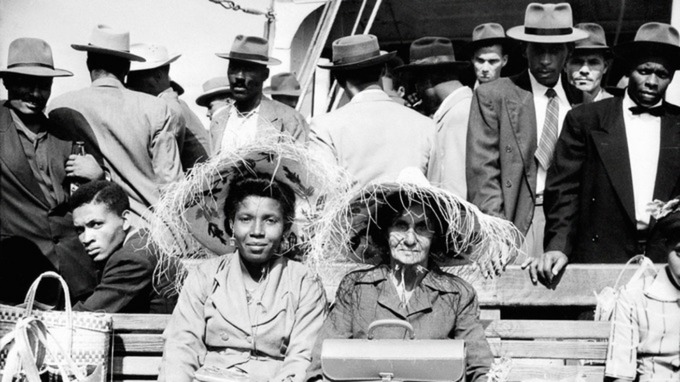So I’ll admit there are few things more gratifying than to witness and shape the creativity of another — to watch that gentle unfurling of soul, like a wind-snatched sail, as they place their palm in yours to glide upon the eddies of their chosen art, and in so doing discover layers to their skill they hadn’t realised were there. It is, to me, a kind of alchemy, or magic, and for them, often, a shedding of old skin — like freedom, or rebellion, or both.
And so you can imagine my thrill upon being asked this past month to design and lead a writers’ workshop for Manchester Metropolitan University as part of a UNESCO City of Literature initiative.
My session, which was one of six, was to explore themes of fantasy and belonging amongst that special group of Caribbean post-war immigrants to Britain known as ‘the Windrush generation’; and especially those who’d experienced working in the UK’s National Health Service.
The NHS: a quick non-history
The NHS — a bastion of British heritage, and for many an emblem of near constitutional weight — emerged following the second world war; born at the behest of Aneurin Bevan MP, a Welsh Christian politician who viewed access to free healthcare, radical notion though it was, as an inalienable human right.
From these beginnings, the NHS eventually became to the British what the military often is to citizens of the US — an heirloom of our culture, threaded into our national folklore and almost indivisible from the flag itself. No harm in that, I suppose.
The problem is the history of this great institution has remained incomplete, shorn of the untold stories of the thousands of immigrants who ventured from their Caribbean homes to British shores all those decades ago, drawn by post-war pleas to help rebuild the nation’s ravaged economy, and bolster its decimated workforce following the war.

And so the humble goal of my workshop, such as it was, along with the sessions that preceded it, was to create an environment in which to help readdress this erasure, by equipping writers of that storied generation, and those connected to them, to explore ways to share their accounts in narrative form; the results of which will be featured in an anthology to be published and launched at Manchester’s historic Central Library this summer.
In the end, the session I led — which involved games, discussions, and readings taken from the works of Chimamanda Ngozie Adichie, Chinua Achebe and, yes, yours truly — turned out to be an especially cathartic experience; one so powerfully immersive that we ran over by more than an hour, engaged as we were in probing the boundaries and power of narrative truth. Which, by the by, remains an ever intriguing notion to explore…
The power of narrative truth
You see, we like to imagine ourselves rational beings, enlightened, impervious to the superstitions of our less civilised ancestors. All this despite lugging around millennia-old neurology, ill-equipped for discerning or accepting values, meaning or even truths that do not abide by the hoary gambits of narrative.
Stories shape how we learn, what we believe, what we deem important, and even what we want.
It’s why there are studies to show we’re more compelled by personal anecdotes than raw statistics. It’s why thinkers from Elie Wiesel to Robert McKee have cited storytelling as ‘the most powerful way to put ideas into the world.’
Whereas pie charts, big data and bar graphs have been around for years, storytelling has been part and parcel of our existence for millennia. We are, on an inescapably visceral and limbic level, beholden to its laws. Beginning and end. Cause and effect. History and legacy — rules of inference that govern everything from our sciences to our arts, and even our politics.

And so we had fun, during our workshop, playing with these laws, testing their limits to explore experiences of belonging and unbelonging, and thereby mark the paths trodden by forbears too often forgotten in the shared cultural narratives we recite to ourselves.
What was interesting is how this morphed into an excavating of the architecture of emotions, and what they reveal about the most quintessential elements of our humanity.
Because we can, as human beings, care about everything and everyone if their story is told well enough; which is a powerful thing to consider isn’t it. Because it means how connected we are (or aren’t) as a society is in many ways down to the skill and the will of our storytellers — the talents and intentions of our arts and media.
As one especially gifted author and biographer once put it:
The destiny of the world is determined… by the stories it loves and believes in.
Harold Clarke Goddard
So, to the storyteller. Maker and breaker of worlds. Saviour. Destroyer. Truth teller. Liar. Prophet. Scribe. Beginning. End.
Subscribe
Get notified of the latest posts by email.
